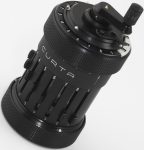Liechtenstein is the smallest German speaking nation in the world. Originally made a territory by the Holy Roman Empire, it ceased obligation to any feudal lord after the Holy Roman Empire was taken over by the French during the Napoleonic Wars. Soon, Liechtenstein joined the German Confederation. After World War II Liechtenstein gave asylum to 500 Russian soldiers from the First Russian National Army. This proved to be difficult because it did not have much money or food, so the soldiers were transferred to Argentina, who agreed to house them. To fix their financial straights Liechtenstein resorted to selling family artistic treasures, such as Ginevra de Benci by Leonardo da Vinci. Today it is a popular location for winter sports!
The monarch of Liechtenstein (also the head of state) is the reigning prince of the Princely House of Liechtenstein. Switzerland, however, has taken over most of Liechtenstein’s international relations. Liechtenstein is divided into two halfs: the Oberland (upper country) and Unterland (Lower country). The government is made up of an executive authority, legislative authority and judicial authority. The parliament elects a Landesausschuss (national committee) made of the president of the parliament and four additional members that perform parliamentary oversight functions.




